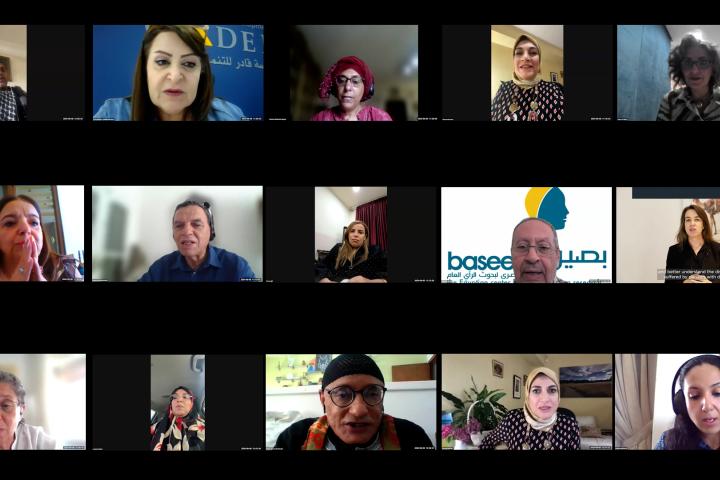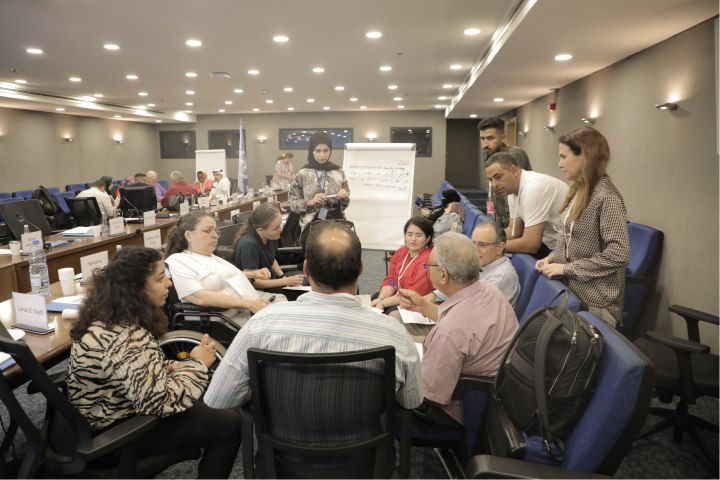The fourth and final panel of the 28th ministerial session of ESCWA focused on the topic “Social justice - monitoring and measurement”. The aim was to exchange lessons learned among Arab leaders and prominent regional and international thinkers to translate social justice policy needs into a set of statistical indicators that provide an evidence-base for such policies; assess how those indicators relate to existing frameworks, in particular to measuring sustainable development and monitoring development goals; and identify the gaps in official statistics with respect to proposed indicators on social justice, such as human rights, good governance and well-being indicators.
The fourth ministerial panel focused on the challenges of measuring social justice, owing to imperfect indicators and unreliable and inconsistent data. Official statistics should therefore be used to develop new data approaches to measure governance, participation, social justice and well-being. Indicators related to affordability and equal access to basic goods and services are perceived as a foundational measure of social justice, including food security, housing, improved water and sanitation and personal security.
Participants focused on poverty as the principal barrier to social justice, because it not only denies people the right to adequate food and housing, but also makes it near impossible to participate in society and lead a self-determined life. Given the limitations of official statistics in measuring well-being, the focus is on areas that are currently measurable, such as health, education, access to knowledge and information and environmental sustainability. The aim of the discussion is to secure a political commitment to achieving social justice and cementing it in development plans to ensure a dignified life for all.



